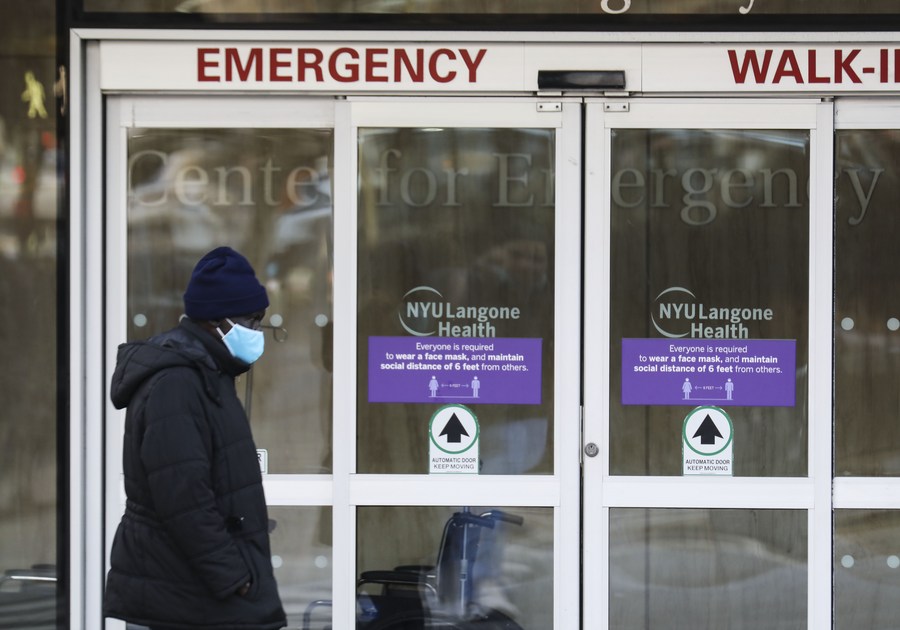114 mln Americans think U.S. healthcare system failing them: poll

A pedestrian walks past the entrance of an emergency room of a hospital in New York, the United States, Dec. 13, 2021. (Xinhua/Wang Ying)
The negative feelings about healthcare affordability were strikingly similar across gender, age, race, household income and political persuasion.
NEW YORK, Oct. 11 (Xinhua) -- Nearly half of the U.S. population (44 percent), or about 114 million Americans, give poor (30 percent) or failing (14 percent) grades to the country's healthcare system, with percentages climbing higher and growing even more negative when it comes to affordability and health equity, according to a new report from West Health and Gallup, the polling organization.
"High marks were in short supply across the board, with the healthcare system getting an average grade of C-minus. Women and Hispanic and Asian Americans were more negative, with about half of each group assigning it a grade of D or F compared to about 40 percent of males, and 43 percent of White and Black Americans," said West Health in its report last week.
Nothing, however, earned more failing grades than affordability, which for three-quarters of Americans, an estimated 190 million adults, deserved no higher than a D (41 percent) or F (33 percent), for an average grade of D-minus, it said.
"Top grade of A was virtually nonexistent (1 percent), only 6 percent went as high as a B, and 19 percent gave it a middling grade of C. The negative feelings about healthcare affordability were strikingly similar across gender, age, race, household income and political persuasion," it added.
The 2022 West Health-Gallup Healthcare in America Report asked a nationally representative sample of more than 5,500 Americans to provide a letter grade (A-excellent, B-good, C-satisfactory, D-poor and F-fail) for the healthcare system overall and to give individual grades for affordability, equity, accessibility and quality of care.
Photos
Related Stories
- U.S. sanctions deprive Iranian women of life-saving medicine: Iranian spokesman
- Newly arrived asylum seekers in New York face difficulties in settling down
- U.S. monetary tightening wrecks havoc on emerging economies, says Malaysian economist
- America's looming national debt crunch could spell disaster for world
- U.S. lacks data on race, ethnicity to track systemic racism: report
- Only 4 pct eligible Americans received new COVID-19 booster ahead of potential fall surge
Copyright © 2022 People's Daily Online. All Rights Reserved.









